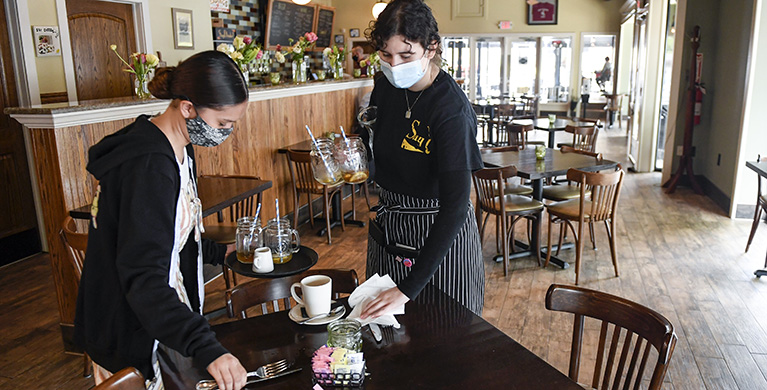What to Know
- SEPTA eliminated all capacity limits on vehicles in its transit system on June 1, 2021.
- Everyone on board is still required to wear face masks.
- SEPTA has seen a decline in ridership with many people working from home amid the COVID-19 pandemic.
NBC10 is one of dozens of news organizations producing BROKE in Philly, a collaborative reporting project on solutions to poverty and the city’s push toward economic justice. Follow us at @BrokeInPhilly.
SEPTA buses and trains could be getting more crowded with masked people.
Starting Tuesday, June 1, SEPTA lifted COVID-19-related capacity limits on its trains, buses and trolleys. Mask-wearing -- something suggested by the Centers for Disease Control and Prevention on public transit even for vaccinated people -- remains in place.
Get top local stories in Philly delivered to you every morning. >Sign up for NBC Philadelphia's News Headlines newsletter.
The Philadelphia-area transit agency said while making its announcement last month that more people getting vaccinated and a decrease in coronavirus cases led to the decision to lift the more than year-old restrictions and return to 100% capacity. Pennsylvania lifted coronavirus-related restrictions on Monday and Philadelphia will follow suit Wednesday.
SEPTA celebrated the return of full vehicles by cutting the ribbon on its new 5th
Street/Independence Hall Station along the Market-Frankford Line.
"We can feel from the vibe things are beginning to come back," Philadelphia Mayor Jim Kenney said at the ribbon cutting.
SEPTA ridership has gone down during the coronavirus pandemic. Some stopped riding because of the pandemic, including working from home and worries about getting sick. But plenty of people also said they are turned off by trash, smell and feeling unsafe.
The transit agency, however, points to safety measures it has in place -- including changing air in vehicles every two to three minutes, daily vehicle cleaning and mask wearing -- in protecting its riders.
“Removing vehicle capacity limits to meet increased ridership demand is a major step in the region’s recovery,” SEPTA General Manager Leslie Richards said in a news release last month. “We are grateful for our riders who counted on SEPTA throughout the pandemic, and we are excited to safely welcome back those who may be taking the system for the first time in over a year.”
A recent NBC10 survey found that some SEPTA riders have been turned off for good after not riding during the pandemic. SEPTA was losing $1 million a day at one point during the pandemic.
How to bring riders back is SEPTA's challenge moving forward.
In the meantime, folks getting back on SEPTA can use the agency's Estimated Seat Availability Dashboard to see how crowded the bus is before they board.



